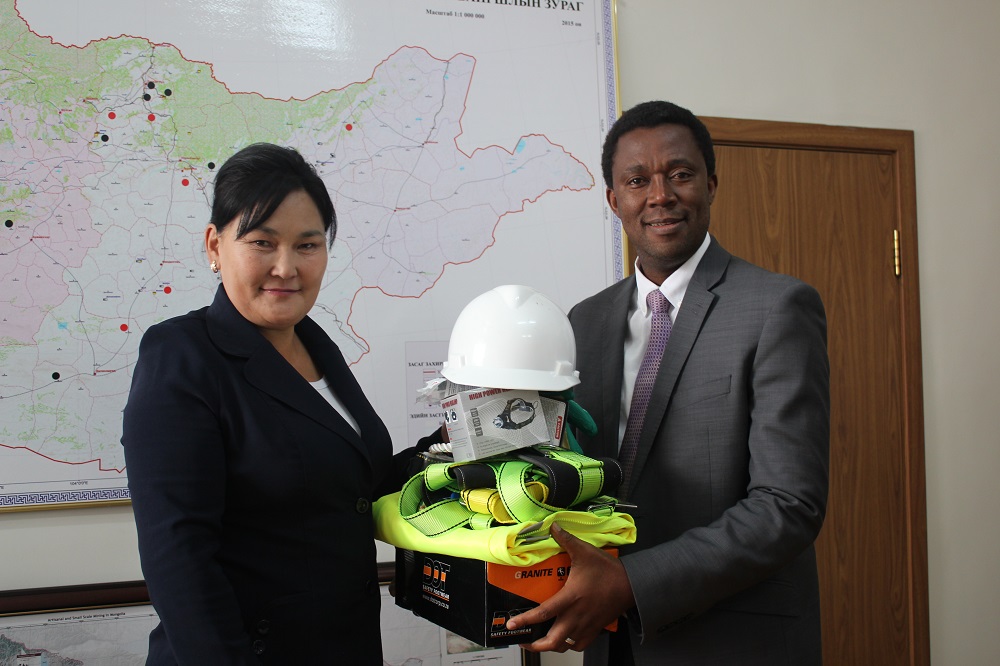Tuya Damdinjamts spent her youth working to improve the legal and social environment for unorganised and illegal miners not only from her hometown in Mandal soum, Selenge aimag, but also from many other places. She is recognised in her community for her trustworthiness and commitment, and has been the head of the Bag Citizen’s representative for eight consecutive years. In her role, Tuya addresses the social issues of the local community, provides support for women, vulnerable groups and the poor, and protects their interests and rights.
In her community there were few jobs and most people had little option but to turn to artisanal mining for survival. Like so many others, she went to Baruunkharaa to mine gold, in the process forging a strong bond between her and artisanal mining. “The life in the mines was very tough; not in the work that the ‘ninjas’ were doing, but in the adverse changes to those people’s behavior and attitudes, and the way they treated each other and drank irresponsibly … also, the working environment was horrible, and there were no decent tools other than an air pounder. No one was paying attention to these people, and no regulations were issued,” she said.
In 2007, the artisanal miners faced criminal proceedings stemming from the misuse of toxic substances such as mercury and cyanide. Tuya was the only woman among them; however, she said she used it because she didn’t know what it was and lacked basic information. Mercury and cyanide were sold freely like bread over the counter, and she wanted to warn the public about it. “There was no information and precautions about its dangers from the government. If there was enough information and knowledge about it, it wouldn’t have happened.” This led her to think how she could help other struggling gold miners and fight the issues they were facing.
When she heard about the SAM Project, she traveled to Ulaanbaatar to meet with the project administration, where she learnt there was no way to continue mining gold in an unorganised and illegal manner. So she gathered together artisanal gold miners and launched an NGO called “Duush Mandal Khairkhan” in 2008. One of the key tasks was teaching the miners about collaboration and cooperation.

NGO members also took part in SAM Project training and events, enabling them to improve their understanding of their social responsibility and the meaning of “All for one and one for all”. Based on their traditions and beliefs, and in order to educate people, she said, “If we worship the mountains, we will gain more; if we drink alcohol, the spirits will get angry; if we don’t do reclamation, society won’t accept us and the next generation will be disappointed in us”.
“I was fairly satisfied that I could unite all these people with different points of view; and even without my involvement, this organisation became well-structured and ran like a proper organisation. Even though there were times I had money in my account while I was running my business, and also times when I spent all that money on the development of my NGO, I’m happy that the community learned to live for others; it’s more rewarding than earning money,” she said.
To support alternative income sources for artisanal miners, Tuya runs a small board-making, highway and pedestrian guardrail manufacturing factory that provides stable employment for six people. In 2016, she expanded her business by manufacturing assembled concrete patterned boards. Her business efforts have been recognised by local businessmen and she has received requests from other organisations.
She is considering building a plant that doesn’t use mercury in its operations that provides employment for local people and contributes to better livelihoods for at least 40 people. It’s all part of her vision to contribute to her community.









